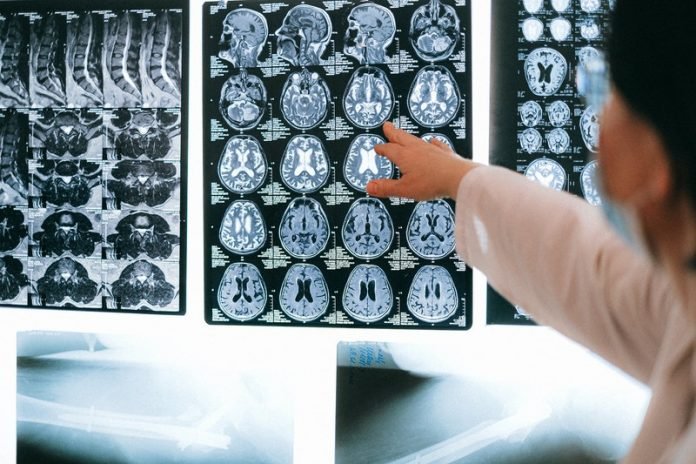
COVID-19 is known primarily as a respiratory disease, with symptoms that include cough, shortness of breath, and, in severe cases, acute respiratory distress syndrome and pneumonia.
In a new study, researchers found that infection with the coronavirus may also affect the central nervous system and cause brain disorders, including stroke, brain inflammation, brain damage and epileptic seizures.
They found the symptoms of COVID-19-related brain manifestations include dizziness, headache, a loss of consciousness and ataxia (loss of balance and muscle control).
The research was conducted by a team from Cleveland Clinic.
The coronavirus gains access to the body by attaching to a specific receptor most abundantly found on cells that line many organs and tissues throughout the respiratory system, called the ACE2 (angiotensin-converting enzyme 2) receptor.
ACE2 can be found less abundantly on cells in other areas of the body—including the heart, esophagus, kidneys and bladder—which increases the chances of viral infection, including through the central nervous system.
As reported in the review, the coronavirus may enter the central nervous system either through a porous bone in the nasal cavity (which causes the loss of smell and/or taste commonly experienced with COVID-19), or through the body’s circulatory system, subsequently crossing the blood-brain barrier.
Once in the central nervous system, the virus activates proteins called cytokines (central players in the body’s immune response) and initiates a “cytokine storm.”
This can cause inflammation in the central nervous system and affect blood-brain barrier integrity.
What’s more, while cytokine storms are usually associated with severe cases of COVID-19, Dr. Ghosh sounded a note of warning.
The team says brain disorders can occur in patients who have only mild or moderate COVID disease. In fact, they can also come about even before the patient has any respiratory symptoms.
While there is currently limited evidence on long-term consequences of COVID-19-associated brain diseases, investigations into whether these comorbidities are risk factors for COVID-19 would be critical to follow.
One author of the study is Chaitali Ghosh, Ph.D.
The study is published in Cells.
Copyright © 2020 Knowridge Science Report. All rights reserved.



